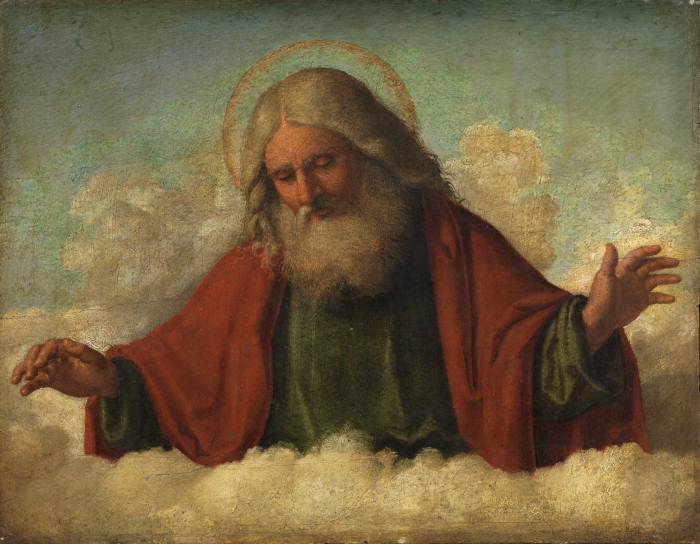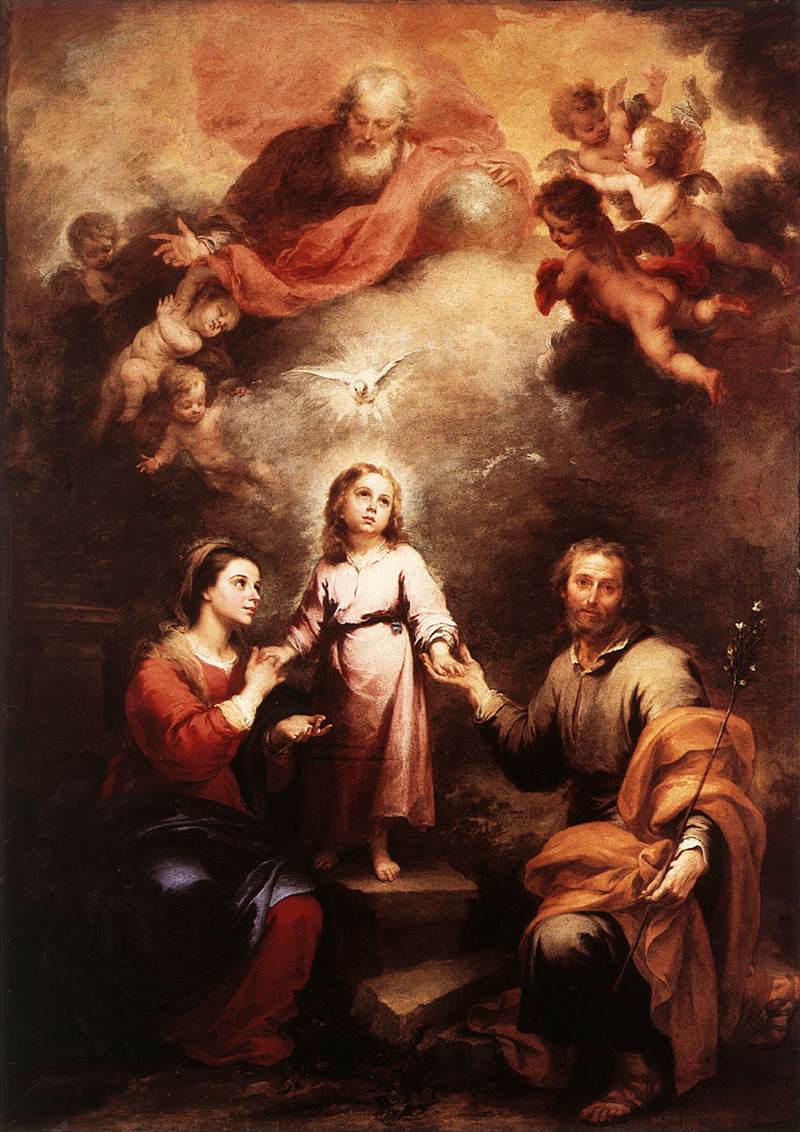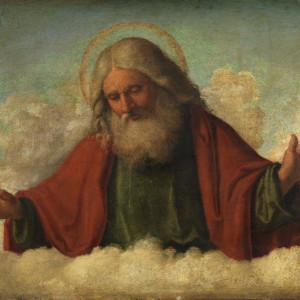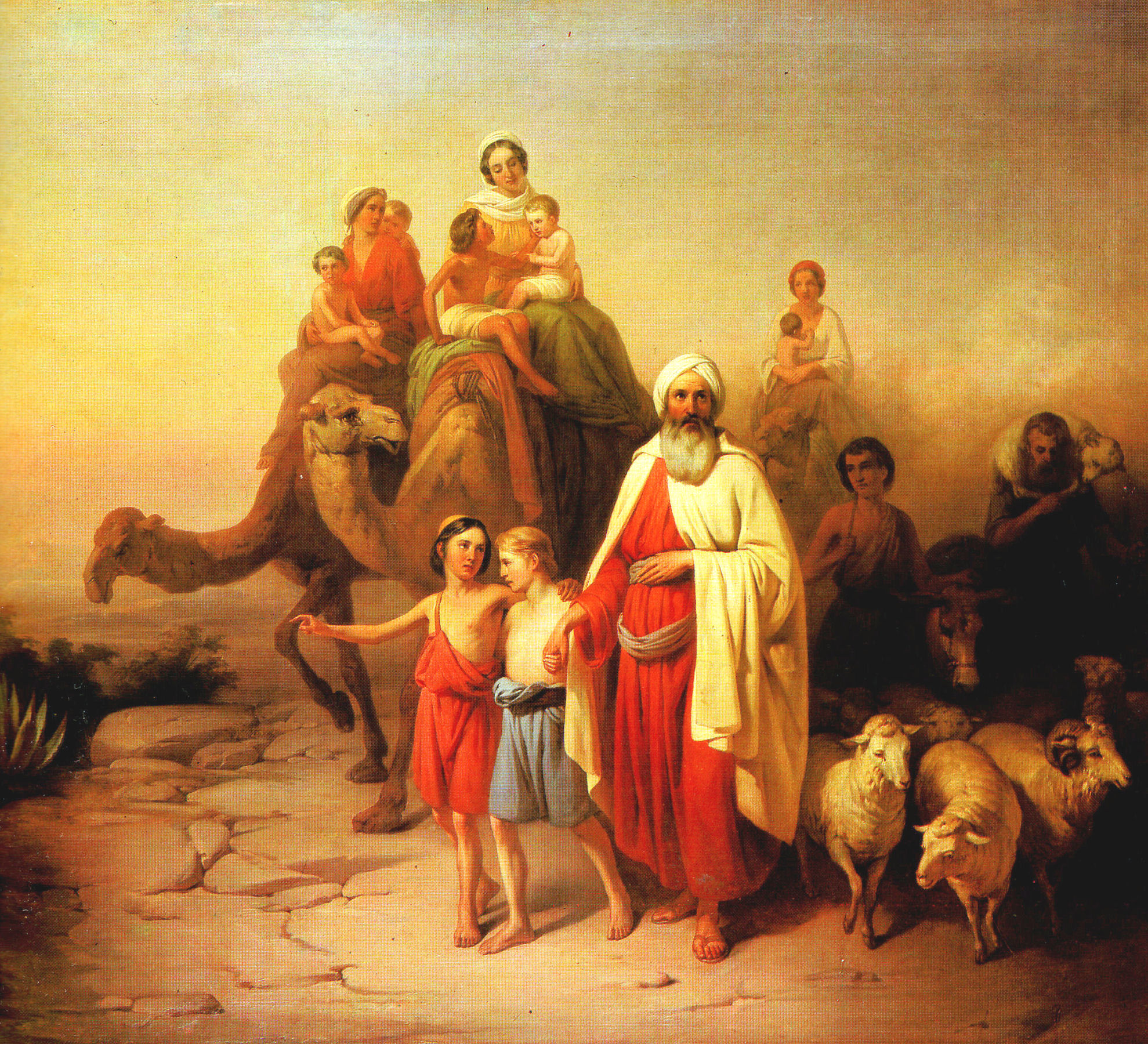Some Christians, based upon Matthew 23:9, are opposed to the practice of calling priests “fathers.” They’re mistaken in this opposition, and risk doing a disservice to God out of their misreading of this text. Now, we already know that the practice of referring to spiritual fathers as “father” is in found throughout the New Testament (e.g., Luke 16:24; Luke 16:30; James 2:21; Acts 4:25; Romans 9:10; 1 Cor. 4:15; cf. Romans 4:11-18), and that taking Matthew 23:9 literally would forbid virtually every manner of referring to spiritual leaders (including “reverend,” “pastor,” “doctor,” etc.) as well as acknowledging one’s biological father as such (which would be a problem for the more than 400 times that the New Testament uses the term “father”).
But I want to go beyond that, and suggest that if did avoid using to any mortal men as “father,” we would be doing a disservice to God. That may sound counter-intuitive, but I think you’ll find that both Scripture and the Catechism point to this answer.
 |
| Cima da Conegliano, God the Father (c. 1517) |
Since our knowledge of God is limited, our language about him is equally so. We can name God only by taking creatures as our starting point, and in accordance with our limited human ways of knowing and thinking.
There are a few points here. First of all, a God small enough to be comprehended by our finite human intellect could scarcely be the infinite Creator of the human intellect (and the entire universe). So God is necessarily bigger than us, and bigger than our intellects. As a result, our intellects are incapable of fully grasping Him. This is compounded by the fact that, this side of Heaven, we have not fully seen or experienced Him. As a result, the process of revelation describing God to us would be a touch like describing the color red to a man born blind. Everything is translated into realities with which we can understand, while we recognize that God transcends these realities.
As a result, all of our descriptors for God, or any Person of the Trinity, are analogous descriptors of creatures: Lord, Master, King, Father, Good Shepherd, Redeemer, Prince of Peace, etc. These are illuminating descriptions of God precisely because we know what a master is, or what a king is, or what a father is, and we know what these things are, because we seem examples from the world around us. So, for example, we can call God “Good,” because we know what goodness is from the many imperfect examples of goodness we see around us. From this, we can imagine what infinite and perfect Good might look like.
This is the only way it can work. If there was a descriptor of God that had absolutely no human analogue, the descriptor would be worthless. It does no good to describe God as King of Kings to someone who doesn’t know what a “king” is. You might as well use Edward Lear’s term, and say that God is “runcible.” Since no one outside of Lear knows what Lear meant by that made-up word, it’s not a particularly illuminating adjective.
Likewise, if we were to collectively interpret Matthew 23:9 literally, and completely stopped referring to anyone other than God as “father” or “teacher,” those terms would lose their meaning. They would become like “runcible” — adjectives that we can use without understanding what they mean.
 |
| Bartolomé Esteban Murillo, Holy Family with the Holy Spirit (c. 1682) |
But it’s not simply that God must be described in analogical terms. It’s that fatherhood is one of the only analogies for God that Scripture actually prescribes.
In Ephesians 3:14-15, St. Paul tells us that every “family” (literally “patria,” from “pater,” meaning “father”) takes their name from the Father. In other words, we can understand the Fatherhood of God precisely through the fatherhood of man, and through the family. Extending this point, it’s also through the family that we can begin to understand the internal dynamic of the Trinity (which is why we’re given the names “Father” and “Son” for the first Two Persons).
Now, certainly, Paul’s description includes biological fatherhood. But it also necessarily includes spiritual fatherhood. And in this sense, it is perfect a more perfect analogy. After all, while God is our Creator, He isn’t our biological Father. On the other hand, He is our spiritual Father.
Of course, ideally, biological fathers are spiritual fathers, too. But it’s in their spiritual fatherhood, more even than their biological fatherhood, that they show their kids Who and what God is like. And of course, it’s possible to be one sort of father without being the other. After all, St. Joseph wasn’t Christ’s biological dad, but he’s still rightly called His “father” (e.g., Luke 2:33). And as we are about to see, Scripture considers Abraham to be the father even of those to whom he has no biological or familial connection at all.
Perhaps the most important point is that God gives us fathers, biological and spiritual, precisely in order to show us what His Fatherhood is like. St. Paul tells us as much in Romans 4:11-18, in his discussion of our father Abraham:
József Molnár, Abraham’s Journey from Ur to Canaan (1850) He received circumcision as a sign or seal of the righteousness which he had by faith while he was still uncircumcised. The purpose was to make him the father of all who believe without being circumcised and who thus have righteousness reckoned to them, and likewise the father of the circumcised who are not merely circumcised but also follow the example of the faith which our father Abraham had before he was circumcised.
The promise to Abraham and his descendants, that they should inherit the world, did not come through the law but through the righteousness of faith. If it is the adherents of the law who are to be the heirs, faith is null and the promise is void. For the law brings wrath, but where there is no law there is no transgression. That is why it depends on faith, in order that the promise may rest on grace and be guaranteed to all his descendants — not only to the adherents of the law but also to those who share the faith of Abraham, for he is the father of us all, as it is written, “I have made you the father of many nations” — in the presence of the God in whom he believed, who gives life to the dead and calls into existence the things that do not exist. In hope he believed against hope, that he should become the father of many nations; as he had been told, “So shall your descendants be.”


So those that used a different term, starting with the New Testament, and the Church Fathers, and for over a millenium after (did Aquinas weigh in?), they did it horribly wrong?
Not that referring to a priest as Father is wrong, but I think it started with the Anglicans. But to insist on the title is overstating things.
TZ,
As I noted above, there are countless examples within Scripture of spiritual fathers being referred to as such. So it’s just not true that the practice originated “over a millennium after” the advent of Christianity. True, it didn’t always take the strict form term of “Father x,” but nowhere did I suggest that it had to.
Nor is it true that this in any way implies that “those that used a different term […] did it horribly wrong.” It’s wrong to deny the title “father” to spiritual fathers. That doesn’t mean we have to deny every other title. That’s the fallacy of false choice. Similarly, it is heretical to deny the title “Father” to the First Person of the Trinity (Scripture reveals that He’s our Father, and refers to Him this way repeatedly). Does that mean that Scripture is therefore wrong in referring to the Father by other titles? Of course not.
You asked (apparently sarcastically) about St. Thomas Aquinas. The answer isn’t hard to find. As one of several possible examples from the Summa, let’s take his section on the “Limbo of the Fathers” In it, he says “This truth is attested by the manifest authority of the canonical Scriptures and the doctrine of the holy Fathers.”
You also mentioned the Church Fathers. To take just a couple examples,
St. Basil writes: “Now I accept no newer creed written for me by other men, nor do I venture to propound the outcome of my own intelligence, lest I make the words of true religion merely human words; but what I have been taught by the holy Fathers, that I announce to all who question me.”
Likewise, Benedict’s Rule says that “what is done without permission of the spiritual father will be imputed to presumption and vain glory, and not to merit. Therefore, let all be done with the approval of the Abbot.” Obviously, many more Patristic examples could be found, but I think this suffices for now.
I.X.,
Joe
It’s also useful to remember that a perfectly Scriptural synonym for “Father” comes to us in the title of elder or presbyter, from which we get the contraction “priest.” As a result, the priest is our spiritual elder, our father in the faith, the local overseer of the family of God.
What about non-catholics?
I think all Christians should take the Scriptural idea of spiritual fatherhood seriously. How that plays out my be different in individual cases. I think that at a bare minimum, we should reject the typical Evangelical interpretation of Matthew 23:9 that says we can’t acknowledge spiritual fathers as such.
I’m not saying you have to refer to your pastor by the formal title “Father ___,” but perhaps at least acknowledging that he serves as a spiritual father: and ideally, exhibits the Fatherhood of God in the process.
I.X.,
Joe
Oh well. Yes. I think of them as the father or shepherd of our ward or branch. I meant more so if I am talking to a Catholic priest should I call him Father. Is that the most respectful way to refer to him?
Jennae
This is and insightful article, and the truth it articulates bears repeating. If we cannot speak about God using analogical concepts (where there is both similarity, and difference, and, in respect to God, the difference is infinitely greater than the similarity), then we are left with equivocal concepts, which means our language means nothing when talking of God. If our concepts and language are equivocal, we may as well use nonce words like runcible, for runcible would mean as much as calling God “Father,” if God the “Father,” and our earthly “father” are equivocal concepts. Worse yet is the suggestion that an earthly father and God the father are univocal concepts, so that God is merely like a human father but simply up a few notches, a father x 10 or father x 100. This notion of God’s Fatherhood is what Jesus condemned, as it would make God’s fatherhood the same substance as man’s fatherhood, which would detract from God’s transcendence.
Not that it has any bearing at all on the actual topic, but I’ve heard the spork referred to as a “runcible spoon.” The children’s book “The Owl and the Pussycat” was the source, now that I think about it. Not sure how that connects it as an adjective for God, though, lol.
St. Paul referred to himself as a “father” (in the spiritual sense, obviously) several times. St. John also addresses the elders in his first epistle as “fathers.” The tradition dates back to the first century.
“For though ye have ten thousand instructors in Christ, yet have ye not many fathers: for in Christ Jesus I have begotten you through the gospel.”
He even refers to himself, obliquely, as a mother: “My little children, for whom I am again in the anguish of childbirth until Christ is formed in you!”
John and Paul both speak often of their “children.”
Great points about the concept of spiritual fatherhood!
From a historical perspective, I’m curious when the common practice began of calling priests “Father so-and-so.” The first commenter implies that it’s an Anglican tradition. Is that so? Did Catholics commonly call their priests “Father” before the 1500s?
God bless! in Nigeria & Africa, Protestants address pastors as”Daddies & their wives “Mummies”. LOL!
God bless! in Nigeria & Africa, Protestants address pastors as”Daddies & their wives “Mummies”. LOL!
God bless! in Nigeria & Africa, Protestants address pastors as”Daddies & their wives “Mummies”. LOL!
I easily go along with calling a priest “father”, I wouldn’t address a priest without using a title. But how to justify calling a priest “My Lord” (Monsignor)? And what about the titles: excellence, eminence, right reverend, very reverend.. and so on. These titles from courtly times need to go; or just used as a private hierarchy within the clergy.
You said they need to go, but why? Are these not consecrated people and, especially in the cases of bishops, direct successors of the Apostles?
These are all titles given a “father”. A father is “Lord” of his house. A mother, the wife of the father, “Lady” of his house.
Mister is simply a derivative of “master”. And it means, “Lord”. Likewise, Mistress, is a derivative of “master” as well. Although it now bears a bad connotation associated with adultery, the Mistress of the house is the Lady of the house.
This is one of the reasons why Protestants abhor the title in respect to priests. Because they deny that they must obey them. They claim they believe the Scriptures. I don’t know what they do with Heb 13:17:
Hebrews 13:17
King James Version (KJV)
17 Obey them that have the rule over you, and submit yourselves: for they watch for your souls, as they that must give account, that they may do it with joy, and not with grief: for that is unprofitable for you.
Sincerely,
De Maria
Taylor is touching on an important point. The hierarchical and monarchical elements of the Church’s ecclesiastical structure aren’t simply the product of history. They point to the fact that Jesus Christ established the Kingdom of God, rather than the People’s Republic of God. He is Lord of Lords (Rev. 19:16), a term that means nothing if we lose all sight of what lordship is.
There’s a huge difference between a democracy, in which the demos (the people) have the final say, and a monarchy, in which things are much more top-down (but ideally, top-down for the sake of the people). Republics and democracies had existed by the time of Christ. It was not a historical accident that He eschewed these forms of ecclesial governance for a Kingdom of God.
We see the perils of a “democratic Church” in at least two places in Scripture: in Matthew 16:13-19, which begins by Jesus asking who men say that He is. It’s quickly revealed that the democratic model of the Church is unreliable and unstable (the masses are divided between thinking He’s John the Baptist, or Elijah, or Jeremiah, or some other equally-incorrect choice). Not only can they not agree, but they’re wrong. It’s only St. Peter, speaking on behalf of the Twelve, with the guidance of the Father, who is able to answer the question. The second place where we see the perils of democratic Church governance is Matthew 27:17-20, in which, put to a vote, the crowd chooses Barabbas over Jesus.
I understand that, in an era when it’s assumed that democracy is the best model for everything, the Church’s insistence on hierarchical titles is counter-cultural and awkward. But we must stand firm that certain areas (particularly, the Church and the family) were never intended to be simply democratic.
I.X.,
Joe
I think you’re addressing Taylor’s response to Tweezy. Although I disagree that we should do away with the titles, I believe Tweezy touches upon a good point.
First, I believe the titles need to remain because they remind us of a truth which in this Protestant country, we tend to forget. The Priests are Ambassadors of Christ in a very special way. I remember the reverence we held for our Priests when I was a child, before I fell away, and it was a far cry from the attitude we hold today. We did, in those days, look upon our Priests as being symbols of Christ in our midst.
However, I believe Tweezy’s point has to do with the clericalist mindset which accompanied our reverence for Priests in that same era. It is the reason, in my opinion, why we were beset with such an apathetic view of our faith. Catholics seemed to believe that if a Priest didn’t do it, it didn’t need to be done or shouldn’t be done. I believe Vatican II has gone a long way in eradicating this idea. By the same token, we need to resist the idea of watering down the honor in which we hold our Priests. They are not mutually exclusive frames of mind. We can honor our Priests as symbols of Christ in the world by calling them, “Father”, “Monsignor” and “Holy Father”, by being obedient to them and by many signs of affection as we would do for Christ. At the same time, we now recognize that we, the Laity, are empowered to do much more than we ever realized we could do before with regards to spreading our faith and living our faith publicly .
Sincerely,
De Maria
Hello, I am a Protestant. (The son of a minister in fact.). I understand and agree completely that Jesus clearly never *literally* meant that no one should ever be called a father or a rabbi (teacher). Biological fathers and spiritual fathers/forefathers and teachers are clearly acknowledged in such fashion in the NT.
However, Jesus words have to have *some* specific meaning beyond merely condemning the arrogance and hypocrisy of the Scribes and Pharisees. For indeed, He already did that in such explicit terms that adding a purely *symbolic* admonition against the use of such titles seems superfluous at best, and nonsensical at worst. Surely—for His admonition to have any *practical* applicability—His meaning has to be that we are not to append those as formal
*title*s to be applied to our spiritual leaders. In the context of this passage, it would make sense, for the very reason that their use has often tended to distort both the spiritual leaders estimation of their own importance as a conduit to God; and to diminish the very vital importance and real personal accountabilty each member of the Body has before God to grow in His grace and knowledge. (And I have to disagree. Nowhere in the NT is there a clearly demonsterable reference to an Apostle, Elder, or anyone else using the formal *title* “Father” even if they are clearly acknowledged to function that way analogically in manyrespects. (…Indeed some of the NT passages proffered above, use that term to refer to a *physical* and/or spiritual heritage-creating forefather like Abraham without in any way demonstrating that they are being addressed that way as a formal spiritual *title* as to be given to someone set in ecclesiastical authority over a portion of the body of Christ.)
But I say all of the above, not to pick an argument. But with a rather practical question in mind instead. Granted that my understanding of Matthew 23:9 differs from the Catholic Church in at least that important respect, I can foresee a situation where I may be working closely with Catholic priests/nuns in the near future. What I want to know is whether—given my own present state of conscience about the use of such titles (Rom. 14:23)—there is a way I can still address them in a respectful manner that does not offend?